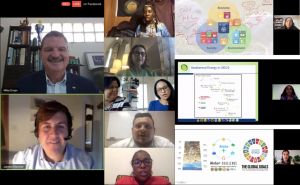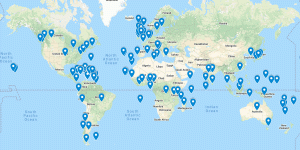UNC alumnus and Founder of Island Innovation, James Ellsmoor (BA ’16), has collaborated with the Strathclyde Centre for Environmental Law and Governance (SCELG) and launched a survey aiming to better understand how Covid-19 was being dealt with on islands globally. The goal was not to undertake a research project but to collate “raw” data from anybody who was inclined to respond and put such data at the disposal of policymakers and wider island related stakeholders in their ongoing activities to deal with and adapt to the Covid-19 pandemic. The response to the survey was very positive and so far responses from islands in 36 countries have been included in an online database where people can now find the data divided by islands and by specific survey questions.
You can view the full policy brief here.
Acknowledging that islands are incredibly diverse in their geography, society, political organization, and economic capacities, and have responded differently to the different challenges the COVID-19 crisis presented them, this report, “Islands and COVID-19: A Global Survey,” tries to capture some identifiable trends in the answers to the questions posed in the survey, without expecting to provide a comprehensive picture of islands and COVID-19 in the world. The report also opens up a conversation on how to move beyond the first phase of the COVID-19 crisis exploring means and pathways for the promotion of more resilient and sustainable islands.
Key Findings
Overall, islands have performed very well compared to mainland counterparts. Island populations have avoided the worst health consequences of COVID-19. While the geography of an island is helpful, the success which islands experienced during COVID-19 was also due to timely and stringent measures adopted during the lockdown period. The pandemic has revealed the fragility of several island socio-economic assets, including tourism, food security, health, and digital infrastructure. A transparent discussion must drive post-COVID-19 recovery packages for islands. This conversation needs to include key socio-economic stakeholders that influenced islands’ society and economics prior to the pandemic. It should also include those that advocated for moving away from a “business as usual” model and towards a more resilient and sustainable future.
Post-COVID-19 recovery debates for islands must fully account for the complexities of island jurisdiction (island states vs. subnational island jurisdictions), island localization of the Sustainable Development Goals, and island efforts to drive a green energy transformation. Lastly, islands engaging in an open and transparent post-COVID-19 recovery debate aimed at promoting a more resilient and sustainable future need to completely embrace the opportunities given to them by digital innovation, without losing track of traditional knowledge and approaches, to bring together island communities.


